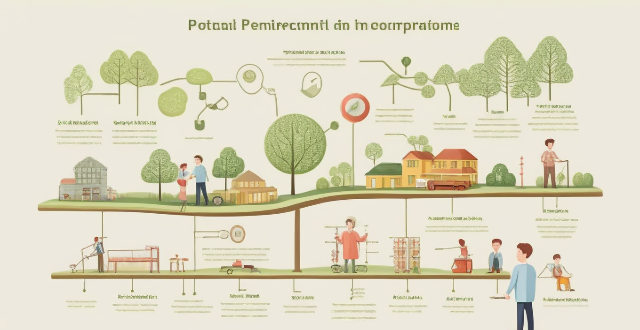Technology has played a pivotal role in the growth and development of multicultural societies. It has facilitated communication, understanding, and collaboration across diverse cultural backgrounds, leading to a more inclusive and interconnected world. The article explores how technology contributes to the growth and development of a multicultural society through enhanced communication, access to information, collaboration and partnership, and cultural preservation and promotion.

The Role of Technology in Fostering Multicultural Growth and Development
Technology has played a pivotal role in the growth and development of multicultural societies. It has facilitated communication, understanding, and collaboration across diverse cultural backgrounds, leading to a more inclusive and interconnected world. In this article, we will explore how technology contributes to the growth and development of a multicultural society.
1. Enhanced Communication
One of the most significant contributions of technology to multicultural societies is enhanced communication. With the advent of the internet, social media platforms, and messaging apps, people from different cultures can easily connect and share their experiences, ideas, and perspectives. This has led to increased understanding and appreciation of diverse cultures, fostering a sense of unity and shared humanity.
a) Instant Messaging and Video Calls
Instant messaging and video call applications like WhatsApp, Skype, and Zoom have made it possible for people to stay connected with their friends, family, and colleagues across the globe. These tools have broken down geographical barriers, allowing for real-time conversations and virtual meetings that were once impossible.
b) Social Media Platforms
Social media platforms such as Facebook, Twitter, and Instagram have created global communities where people can share their thoughts, experiences, and cultural traditions. These platforms have also given rise to hashtag movements that promote social justice, equality, and cultural awareness, further strengthening multicultural bonds.
2. Access to Information
Technology has revolutionized the way we access information. The internet provides a vast repository of knowledge on various cultures, customs, and traditions, making it easier for individuals to learn about and appreciate other cultures.
a) Online Learning Resources
Online learning resources such as educational websites, e-books, and online courses offer valuable insights into different cultures. These resources allow individuals to gain a deeper understanding of other cultures without leaving their homes, promoting cross-cultural education and awareness.
b) Cultural Websites and Blogs
Cultural websites and blogs provide firsthand accounts of life in different parts of the world. They offer unique perspectives on cultural practices, traditions, and customs, helping readers develop a more nuanced understanding of diverse cultures.
3. Collaboration and Partnership
Technology has facilitated collaboration and partnership among individuals and organizations from different cultures. This has led to increased innovation, creativity, and problem-solving capacity within multicultural societies.
a) Remote Work and Collaboration Tools
Remote work and collaboration tools such as Slack, Trello, and Asana enable teams from different cultures to work together seamlessly. These tools help overcome language barriers and time zone differences, fostering effective communication and collaboration among team members.
b) Global Partnerships and Alliances
Global partnerships and alliances between organizations from different cultures have become more common due to technological advancements. These partnerships promote knowledge sharing, resource exchange, and joint projects that benefit all involved parties while fostering mutual respect and understanding among diverse cultures.
4. Cultural Preservation and Promotion
Technology plays a crucial role in preserving and promoting cultural heritage. Digital tools and platforms enable individuals and organizations to document, share, and celebrate their cultural traditions with a wider audience.
a) Digital Archives and Museums
Digital archives and museums provide accessible online repositories for cultural artifacts, documents, and artworks. These digital collections allow people from all over the world to explore and appreciate different cultures' rich history and heritage.
b) Cultural Festivals and Events
Cultural festivals and events are now widely celebrated through virtual platforms due to technological advancements. These virtual celebrations bring people together from different cultures to participate in traditional rituals, performances, and activities while promoting cultural diversity and inclusion.
In conclusion, technology has significantly contributed to the growth and development of multicultural societies by enhancing communication, providing access to information, facilitating collaboration and partnership, and preserving cultural heritage. As technology continues to evolve, its impact on multicultural societies will only become more profound, leading to a brighter future where diversity is celebrated and embraced globally.